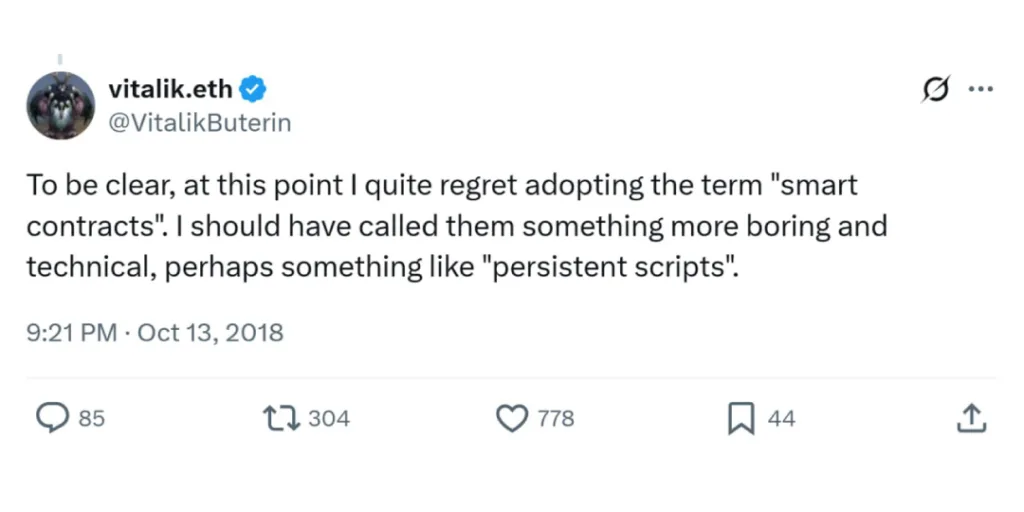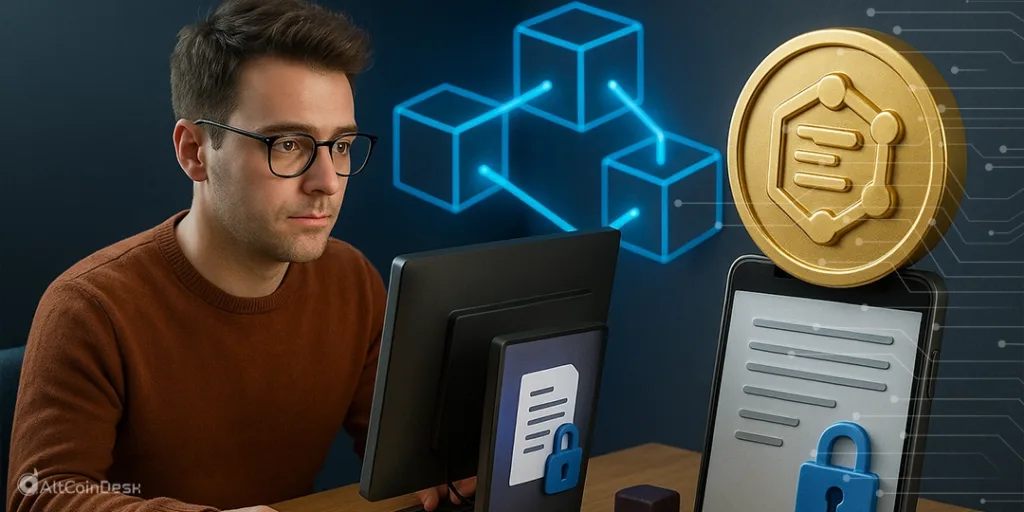Smart contracts get tossed around in every crypto conversation, but most people still don’t know what they actually do. Are they code? Are they legal agreements? Or just another buzzword? The answer is simpler and way more powerful than you’d expect.
How do smart contracts work?
Smart contracts work like digital “if this, then that” agreements on the blockchain. Once certain conditions are met, the contract automatically carries out the action. No middleman needed. Every completed action is permanently recorded on the blockchain, meaning it can’t be changed later. Only the people who are supposed to see the details can access them.
A smart contract can be simple or packed with rules, depending on what the parties agree on. Before setting one up, everyone has to decide how the data will look on the blockchain, what rules to include, and how to handle disputes.
Once that’s clear, a developer codes the contract. These days, it’s even easier because many platforms offer templates and tools so you don’t have to build everything from scratch.
Exploring the varieties of smart contracts

Smart contracts real-world examples
- Ethereum: The first blockchain to popularize smart contracts, powering thousands of DApps, DeFi protocols, and NFTs.
- Uniswap: A decentralized exchange where trades are executed automatically through smart contracts.
- MakerDAO: Uses smart contracts to manage the DAI stablecoin and maintain its peg.
- CryptoKitties: One of the first blockchain games where minting and trading digital cats is handled by smart contracts.
Benefits of smart contracts
- Automation: Actions execute automatically once preset conditions are hit. This cuts out manual effort and makes processes way smoother.
- Transparency: Everything’s out in the open. Code and transactions are publicly visible on the blockchain, so accountability isn’t just a buzzword—it’s part of the tech.
- Security: Once the contract’s live, it’s basically set in stone. Tampering or bad-faith modifications? Not happening.
- Cost and speed efficiency: No waiting for paperwork or approvals from intermediaries. Transactions happen quickly, and you’re not stuck paying extra fees to the middlemen.
- Transparent transactions: Parties don’t have to know or trust each other personally—the system’s logic takes care of the details.
Risks and limitations
- Bugs and vulnerabilities: A sloppy line of code could open the door to hackers, potentially resulting in significant losses.
- Immutability: Once deployed, contracts can’t be changed unless they’re specifically designed to be upgradable. Mistakes are tough (and often expensive) to fix.
- Legal recognition: Not every jurisdiction treats smart contracts as legally binding. Enforcement could be uncertain depending on where you operate.
- Complexity for new users: Interacting with these contracts isn’t exactly plug-and-play for beginners. Simple errors can result in lost assets.
- Reliance on external data: Some contracts pull in data from oracles—if the external info is wrong or tampered with, the contract might fail in ways you didn’t expect.
Use cases of smart contracts
Smart contracts aren’t just for developers or crypto insiders — they offer practical applications for a wide range of people and organizations. By automating agreements and processes, smart contracts can save time, reduce costs, and increase transparency across industries and everyday activities.
- Entrepreneurs: Launch decentralized businesses, automate payments, or raise funds through tokenized crowdfunding.
- Common Users: Lend, borrow, trade crypto, or buy and sell NFTs safely and transparently.
- Developers: Build decentralized apps, create tokens, and design complex automated systems.
- Investors / Traders: Automate trades, stake tokens, and participate in DeFi protocols.
- Businesses / Corporations: Streamline supply chains, payroll, or contractual agreements globally.
- Artists / Creators: Mint NFTs, enforce royalties automatically, and sell digital art securely.
- Nonprofits / Community Groups: Manage decentralized funding, donations, or grants transparently.
- Gamers / Game Developers: Enable play-to-earn economies and in-game assets without intermediaries.
How to interact with smart contracts
You really don’t need to be a coder to interact with smart contracts these days. As long as you’ve got a supported crypto wallet and a basic understanding of how the platform functions, you’re good to go. Most business users engage through decentralized applications—think DeFi lending, token swaps on DEXs, or governance votes in a DAO.
When you initiate an action, your wallet sends a transaction straight to the smart contract, which then executes automatically, per its code. Best practice? Always confirm the contract’s been audited, scan the latest reviews, and start with small amounts to mitigate risk.
Expert perspectives on smart contracts
Vitalik Buterin, one of Ethereum’s co-founders, has openly questioned whether the label “smart contracts” was ever a good idea for these blockchain programs. In hindsight, he’s said he might have preferred something a lot less glamorous—like “persistent scripts.” The name, he argues, creates confusion and lets people imagine these digital contracts have all sorts of abilities they really don’t. Bottom line: users might walk in expecting too much.

Meanwhile, Andreas Antonopoulos, a Bitcoin advocate and tech entrepreneur, hasn’t exactly sugarcoated his criticism. He calls smart contracts “dumb programs”—a reminder that, yes, these algorithms follow written instructions, but really lack any self-direction or intelligence. According to Antonopoulos, painting them as “smart” gives businesses and the public the wrong idea about what they can actually do, which could lead to serious misconceptions in the marketplace.
How to start your own smart contract
Building your own smart contract isn’t just about dabbling in code—it’s a deep dive into the nuts and bolts of Solidity and Rust. Before getting anywhere near the main blockchain, you’ve got to rigorously implement your logic and then hammer away on a testnet. Think of a testnet as your quality control firewall; skipping this step is like launching a product without ever checking if it works. Once everything checks out? You deploy—with a wallet and some crypto handy for those inevitable gas fees—and your contract is live, executing instructions exactly as you set them.
There’s zero wiggle room for mistakes after launch—immutability means you simply cannot make tweaks down the line. That’s why thorough testing and auditing aren’t just best practices, they’re business essentials.
If you take the time to master how smart contracts tick and how to interact with them wisely, you’ll be in a strong position to capitalize on emerging trends—whether it’s DeFi, NFTs, or new blockchain use cases on the horizon. Doesn’t matter if your role is pure user, builder, or business strategist: smart contracts are fast becoming the backbone of decentralized industries. Understanding them now is an investment in the future of your business operations.





